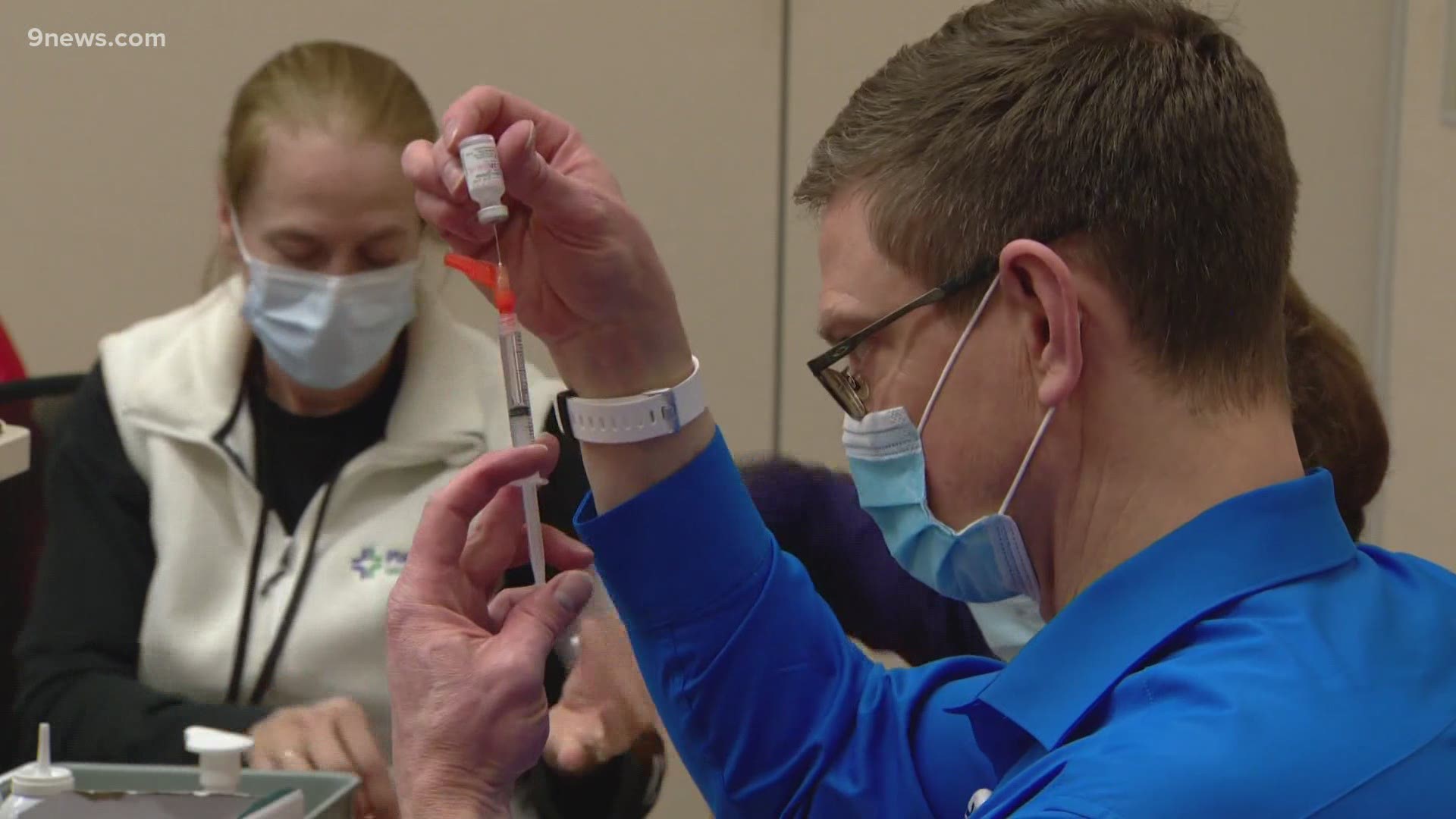DENVER — While much is known about the safety and efficacy of the Pfizer and Moderna vaccines, researchers are still studying their impact on transmissibility.
Those studies are critical to understanding how and when people who are fully vaccinated can safely return to a level of pre-pandemic normalcy without masks or social distancing.
We asked UCHealth's Chief Innovation Officer Dr. Richard Zane to walk us through why the effect on transmission remains relatively unknown at this point.
(Editor's Note: Responses have edited for context and clarity.)
9NEWS: At this point, what do we know about how vaccines currently approved for use in the U.S. affect the transmission of the virus that causes COVID-19?
Zane: What we know about the impact on transmission is very preliminary. There are some promising studies out of Israel and others in the United States and elsewhere that show patients who have been vaccinated may have a lower rate of transmission than those who have not been vaccinated.
These are very difficult studies to do and although it's scientifically intuitive that this would happen there's a difference between preventing disease and preventing infection. So, we must prove that the vaccines prevent infection, and then prevent transmission. It's preliminary although very promising and intuitive and we're very hopeful that these vaccines will prevent transmission.
Why is it so critical to better understand transmission?
Zane: I think it's important from the context of getting back to normal. And people are very anxious to not wear masks anymore because it's not fun wearing masks. The reason we wear masks is so that we don't transmit the virus to others. If we've been vaccinated and therefore can't transmit the virus to others not only are we preventing disease but we don't have to wear masks. There are more studies that are coming. They're very complicated but we are extremely hopeful at the really promising results.
In general terms, how do the vaccines work?
Zane: When you are exposed to COVID-19, that is the antigen. Once you're exposed to the antigen, you then develop an antibody response that responds and fights off that virus. Remember, you have to be exposed to that COVID-19 before you develop that antibody response. Antibodies can circulate around, but after a while, it's really the T cells that remember the antigen and then help the body produce that response.
So, there may be a period of time where you are infected, or infectious even though you're completely asymptomatic. That being said, if you have been vaccinated and have that response, the level of infection, or the level or amount of virus in you, is going to be much less than if you were not vaccinated. That’s why we think that it will, at the very least, decrease the transmissibility and, hopefully, eliminate the transmissibility.
Was transmissibility looked at in the initial studies of these vaccines?
Zane: The purpose of the initial studies was to prove that the vaccine worked and was safe. Worked and safe is really important. The vaccines do work at preventing disease and are definitely safe. The studies that were concurrent were looking at the level of virus and patients who have been vaccinated. In the early Moderna trial after the first dose of vaccine they did swab people's noses and compared to people who hadn't received the vaccine, there was far less virus compared to the placebo.
These initial studies were certainly started, they just aren't complete yet because they're just complicated. We have to wait until we have a certain population that's fully vaccinated, measure the transmission rate or the rate of disease in their close contacts, and then we can say that it decreases transmissibility. So until you're vaccinated, and you're the only one in your family and then we can say, in three months or six months that no one in your family has caught COVID from you or from anyone else then we can say that it's correlated.
You mentioned a study in Israel, are there any caveats or concerns with it at this point?
Zane: The concerns are that the data is preliminary. Half of the population of Israel has received at least one dose of the vaccine and the severity of the disease has decreased very significantly, hospitalizations have decreased significantly, and it appears as though, in early analysis, the transmission of disease has decreased as well.
It's still early. Israel is a small population and there are lots of other confounders, for instance, wearing masks, social distancing, washing hands significantly decreased transmissibility. So, we have to decide whether that's what's causing the decrease in transmissibility or it's the vaccine. We really do have to do more study. Again, very preliminary, but very exciting and promising.
When do you think we’ll have a better understanding of the impact vaccines have on transmissibility?
Zane: I think the CDC will have guidelines that will come out soon that will specifically describe behaviors of people who've been fully vaccinated and what they can and can't do differently from what's out there now. I'm hopeful that within six months or a year, even though that sounds like a long time, we'll know a lot more about the transmissibility issue of the vaccine.
Use the form below to submit any vaccine-related questions that you may have.
SUGGESTED VIDEOS: COVID-19 Coronavirus

